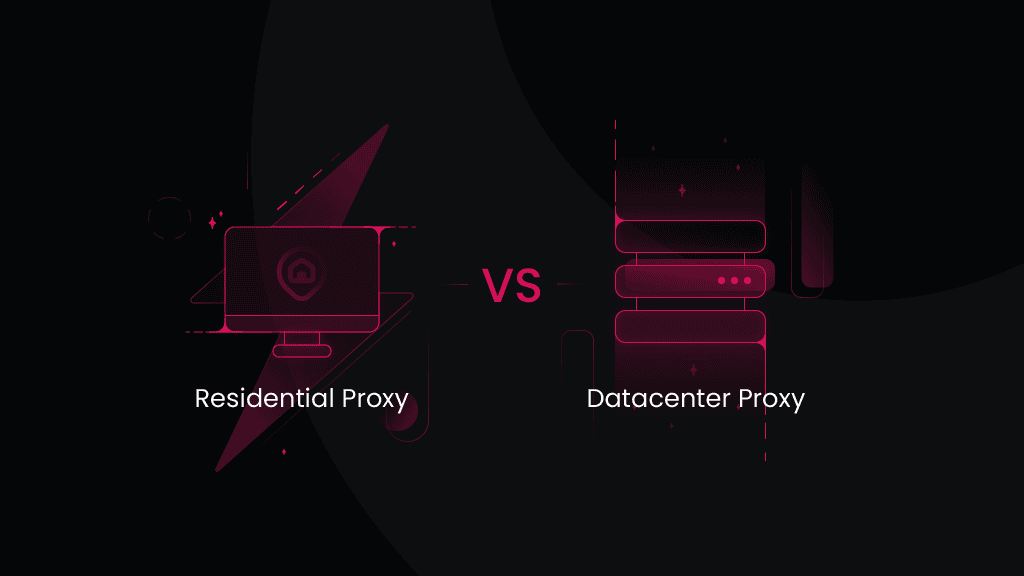Proxy Integration with OpenBullet
Boost your web and app testing efforts by integrating residential proxies into OpenBullet.

55M+ IP pool

Advanced targeting

195+ global locations

24/7 tech support

Easy to integrate

99.99% uptime
What is OpenBullet?
OpenBullet is a software tool widely recognized for its capabilities in testing and automating web applications with a highly customizable framework that allows users to implement various scenarios.

Framework customization
Tailor testing environments to meet your specific needs, optimizing the analysis of diverse web applications.

Data parsing and management
Streamline complex workflows by managing data extracted during tests with powerful parsing capabilities.

Multi-protocol support
Effortlessly use HTTP(S) and SOCKS5 protocols for various security testing scenarios.
Why residential proxies?

Residential proxies serve as intermediaries by offering users authentic IP addresses from real household devices on local networks. These proxies are ideal for tasks such as web scraping, multi-accounting, AdTech, and beyond.
Smartproxy provides high-quality residential proxies with a vast pool of 55M+ IPs spanning 195+ locations. Enjoy swift response times of <0.5 seconds, an impeccable success rate of 99.68%, and a flexible Pay As You Go option. New users can start with a 3-day free trial to test the service.
Set up Smartproxy proxies with OpenBullet
There are two official clients for OpenBullet 2: a web client (cross-platform) and a native client (Windows). Follow these instructions to get OpenBullet running on your system.

Getting residential proxies
Log in to your Smartproxy dashboard, find residential proxies by choosing Residential under the Residential Proxies column on the left panel, and select a plan that suits your needs. Then, follow these steps:
- Open the Proxy setup tab.
- Navigate to the Endpoint generator below.
- Configure the parameters. Set your authentication method, location, session type, and protocol.
- Select the number of proxy endpoints you want to generate (default – 10).
- Copy the endpoints by clicking the Copy button.

Integrating proxies with OpenBullet
Once you have your proxy endpoints configured, you can seamlessly integrate them into OpenBullet.
- On OpenBullet, navigate to the Proxies tab on the left panel.
- Click the Add Group button at the top, enter a name for your proxy group, and click Create.
- Click Import Proxies, and insert your proxy endpoints.
- If you’re using an authentication method that includes your username and password or have whitelisted your IP address, simply click Import. If you’ve copied only the proxy server address, click on Import and enter your username and password at the bottom of the window.

Checking your proxy connection
To make sure your proxy setup is working properly, follow these steps:
- On OpenBullet, Navigate to the Jobs tab on the left panel.
- Click the New button at the top and then the Proxy Check button.
- Choose the recently created Proxy group and click the Create Job button.
- Click the green Start button and wait for the job to finish to check if the proxies are working.
OpenBullet checks proxies by connecting to Google, which is a blocked target with some of our proxies. If you need access to a blocked site, contact our 24/7 tech support via LiveChat or verify your ID.
Configurations & Integrations
Easy Smartproxy proxy setup with popular applications and free third-party tools. Check out these guides to get started right away.
Reliable proxies at affordable prices
Pick a plan that suits you. Get ahead with unblockable and stable proxies.
Recognized by:
Explore our other proxy line products
What are proxies?
A proxy is an intermediary between your device and the internet, forwarding requests between your device and the internet while masking your IP address.

Residential Proxies
from $2.2/GB
Real, physical device IPs that provide a genuine online identity and enhance your anonymity online. Learn more

ISP Proxies
from $0.35/IP
IPs assigned by Internet Service Providers (ISPs), offering efficient and location-specific online access with minimal latency. Learn more

Mobile Proxies
from $4.5/GB
Mobile device based IPs offering anonymity and real user behavior for mobile-related activities on the internet. Learn more

Datacenter Proxies
from $0.09/IP
Remote computers with unique IPs for tasks requiring scalability, fast response times, and reliable connections. Learn more

Site Unblocker
from $1.6/1K req
A powerful application for all proxying activities offering dynamic rendering, browser fingerprinting, and much more. Learn more
Smartproxy Blog
Build knowledge on residential proxies, or pick up some dope ideas for your next project - our blog is just the perfect place.
Most recent

How to Scrape Amazon Prices Using Excel
If you’re here, you already know Amazon constantly tweaks product prices. The eCommerce giant makes around 2.5 million price changes daily, resulting in the average item seeing new pricing roughly every ten minutes. For sellers, marketers, and savvy shoppers, that creates both a challenge and an opportunity.
This comprehensive guide walks you through proven methods – from Excel's built-in tools to powerful scraping APIs that can simplify your Amazon price monitoring workflow.

Zilvinas Tamulis
Mar 31, 2025
8 min read
Frequently asked questions
What is OpenBullet?
OpenBullet is a software application designed for testing and automating web services, providing a customizable framework to evaluate security and performance.
What is OpenBullet used for?
OpenBullet is primarily used for penetration testing, website performance monitoring, automating repetitive tasks, and other purposes.
Be aware that any tools mentioned in this article belong to a third party, not Smartproxy. Therefore, Smartproxy will not be responsible for any of the services offered by the third-party. Make sure to thoroughly review the third-party’s policies and practices, or do your due diligence, before using or accessing any of their services.
The Fastest Residential Proxies
Dive into a 55M+ ethically-sourced residential IP pool from 195+ locations worldwide.
14-day money-back option

































